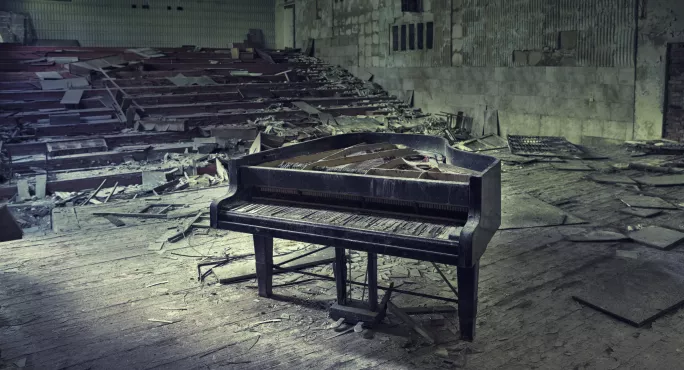- Home
- It’s our responsibility to keep the creative arts alive
It’s our responsibility to keep the creative arts alive

Damian Hinds’ insistence to the education select committee that creative arts are not being squeezed out by a punitive culture of targets and a testing regime will have caused more than a raised eyebrow in some quarters of our sector. But the truth is, the creative arts are alive and well – and indeed thriving – in many state schools.
At the David Ross Education Trust, we are passionate advocates of a knowledge-rich curriculum and believe it is one of the principal drivers of a world-class education. But another – equally important – determinant is enrichment opportunities that are embedded within schools and integrated with pupil learning. It cannot be viewed as a nice-to-have bolt-on. For us, music is one of the core refrains that brings this to life across our academies.
Yes, of course, we live in straitened economic times, but it is at times like these that our mettle on what matters is really tested. What are we here for, if not to help young people go on a journey of discovery to broaden their horizons?
Schools within academy trusts appear to have an advantage here – the scale that MATs have can certainly make it a little easier to be able to ensure that students benefit from a rich diet of music, art, dance and drama, compared with stand alone schools which are more than likely to be feeling the pinch right now. And that is certainly the case in our family of schools.
Finding your voice
Our academies within DRET shout from the rooftops about their creative endeavour. Music is a particular specialism within our academies, and our aim is that high-quality music and music-making is seen and heard in every school by every child and every adult.
What does this look like in practice? It’s one-to-one and small-group tuition in every school. It’s every child performing in a primary music festival during their time with us. It’s inspiration through masterclasses and visiting musicians. It’s our chorister programme, and it’s our all-star primary choir, with performances in esteemed venues such St John’s Smith Square.
It’s our “singing schools” programme where all children learn to use their "free instrument" – their voice. We train our staff to help them not only find their voice, but to access music that stretches their own musical knowledge, concentration, vocabulary, ability to listen and collaborate with others, and – critically – connect with our national musical heritage of choral and ensemble singing.
It’s all this and more. Working with partners such as Nevill Holt Opera, Gabrieli Roar and the Voices Foundation, our pupils benefit from truly unrivalled musical opportunities. Singing takes place every day in our primary schools, and it’s a wonderful thing to see the impact of making music such a central part of our school communities.
Maintaining harmony
Music is an incredible example of how learning can unlock a child’s potential. It is a multi-faceted discipline that sharpens our focus and opens our minds, connecting us with people throughout history and helping us to live happy and fulfilling lives.
Our children deserve no less – if anything, they deserve more. The power of performance and the impact of music-making and musical understanding in the schools we work in is tangible. So much so, that Birmingham City University and Sound Connections, supported by the Paul Hamlyn Foundation, are now evaluating the impact of one of our music programmes – Singing Schools, which has been running in 11 schools – to quantify the wider educational impact on our children.
I fully accept that in some schools across the country creative arts are being squeezed. But it is our collective responsibility to ensure that doesn’t happen. That the temptation to narrow the curriculum doesn’t win out. And that we constantly remind ourselves that our role is not about preparing children and young people for the next set of tests or exams, but to help them discover a little bit more about themselves – the joy within when they become spellbound by a piece of music they are hearing for the first time, or look in wonder at a work of art, or feel their pulse quicken during a dramatic performance.
These are the things that cause the heart to sing and the soul to soar and they must continue to be core to what we all offer. The secretary of state is clear about his belief – we must now be the guardians of that vision.
Keep reading for just £1 per month
You've reached your limit of free articles this month. Subscribe for £1 per month for three months and get:
- Unlimited access to all Tes magazine content
- Exclusive subscriber-only stories
- Award-winning email newsletters

